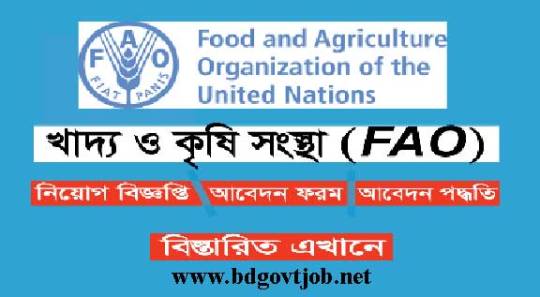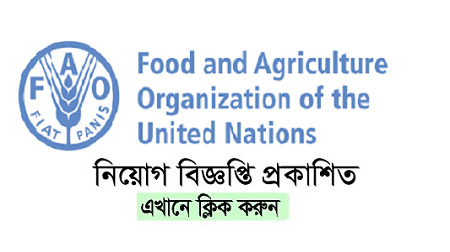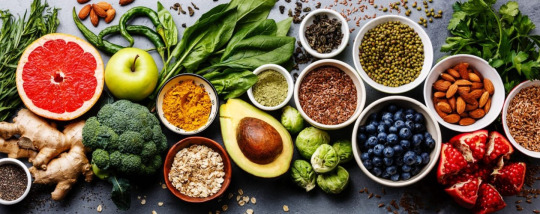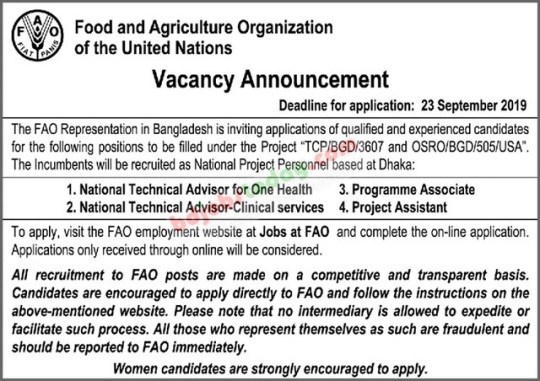#FAO Job Circular
Text
Library Attendant BUET Job Circular 2021
Library Attendant BUET Job Circular 2021
Bangladesh University of Engineering (buet) Job Circular 2021 has been publishing. Interested candidates can find all information regarding Bangladesh University of Engineering (buet) Dhaka Library Attendant BUET Job Circular 2021 from http://www.buet.ac.bd and our website at www.jobscirculars.com.
Tool room incharge BUET Job Circular 2021, Govt job 2021, Company job 2021, Chakri Dak 2021, Today…

View On WordPress
#All govt Job Circular 20#all govt job circular 2021#Bank Job Circular 20#BD govt Job Circular 2021#bd job news today#bd jobs today#chakrir khobor#Company Job Circular 20#Dg Health job Circular 20#FAO Job Circular#Ghashful NGO Job Circular 2021#government job circular 2021#govt Job Circular 2020#Health and Family Planning Job Circular 20#Health Department job circular 20#Health job circuler new#Http EPB teletalk com bd#Job Circular August 2021#joinbangladesharmy mil bd#Jute mills Job circular 2021#Library Attendant BUET Job Circular 2021#ngo job circular#Ongoing all Government Job Circular 2021#police job circular 2021#Porikolpona Job Circular 2021#Primary school Teacher#private job circular 2021#prothom alo govt jobs#recent govt job circular news bd#Recent Health Department govt Job Circular 2021
0 notes
Text
Food and Agriculture Organization FAO Job Circular 2021
Food and Agriculture Organization FAO Job Circular 2021
Food and Agriculture Organization Job Circular 2021 has published by The Food and Agriculture Organization of the United Nations on official website http://www.fao.org/bangladesh/. Food and Agriculture Organization (FAO) Jobs Circular 2021 offer new vacancy for private company jobs seekers. FAO Job Circular 2021 also posted on our BD Govt Job website http://www.bdgovtjob.net. Food and Agriculture…

View On WordPress
#Agriculture#Circular#eee private job circular 2021#FAO#Food#Job#Organization#private job circular 2021 bangladesh#private job circular 2021 bd
0 notes
Text
Sustainable Development Goals:
GOAL 13 AND GOAL 12
WHAT IS CLIMATE ACTION (Goal 13) ?

Climate action means stepped-up efforts to reduce greenhouse gas emissions and strengthen resilience and adaptive capacity to climate-induced impacts, including: climate-related hazards in all countries; integrating climate change measures into national policies, strategies and planning; and improving education, awareness-raising and human and institutional capacity with respect to climate change mitigation, adaptation, impact reduction and early warning.
COVID 19 AND IT'S IMPACT ON CLIMATE ACTION (Goal 13)
As the world is struggling with the rapid-onset COVID-19 crisis, and while it is early to conclude which response strategies were the most successful, we can already start drawing some lessons to help shape our response to the slow-onset disaster of climate change. We share here seven such lessons on how to ensure that the recovery from the COVID-19 crisis will happen in a way that will still put the 2030 Agenda and the Paris Agreement at the center of sustainable development efforts.
1. Put science and scientists first
From the early stages of the COVID-19 pandemic, scientists came together to form collaborative networks beyond political lines and national borders, which has increased the efficiency and speed in research to find a cure. Similarly, policy for advancing climate action should follow science, rather than having political differences interfering with, and preventing, scientific research to be carried out. While the global response to the climate emergency is, and should continue to be, part of multilateral negotiations, science is not negotiable. Well informed climate negotiations mean unimpeded transparency and scientific cooperation, such as the one provided by the Intergovernmental Panel on Climate Change (IPCC).
2. Adopt a “whatever money it takes” approach
Investments that can save even one life, improve livelihoods and the health of ecosystems are never too much. Governments have quickly mobilized financial support to back businesses and expand welfare benefits in response to the COVID-19 pandemic; and this is the right thing to be done! But we often see that much-needed investments on climate action fall victim to difficult negotiations and political conflicts. An urgent fund mobilization is needed to avoid a climate catastrophe. Research shows that the climate investments needed also make great economic sense. For example, it is estimated that for every dollar invested in climate resilient infrastructure six dollars are saved.
3. Protect and improve common goods.
Over-exploitation of common goods, without consideration for the long-term needs of our next generations, has resulted in the “tragedy of the commons”, with big environmental impacts, including the zoonotic origins of the COVID-19 pandemic. Cases of response to the current pandemic show that previous investments by countries in public health and welfare systems have produced better results. Equally important are investments to restore clean air and water, healthy ecosystems, and other environment and climate goods, which contribute to planetary health.
4. Focus on those already left behind
The COVID-19 pandemic struck fast and affected those most vulnerable, those who had little means and access to health-care services, and those in nursing homes and homes for persons with disabilities. In the case of climate change, the ones that have been left behind include inter alia poor farmers, people who lack access to basic services, people living in slums as well as climate migrants. Climate mitigation and adaptation activities should put these and other vulnerable groups at the center of attention and response.
5. Make the global value chains climate resilient
The COVID-19 driven disruption in sectors like transport, medicine and tourism was immediate and hard. The climate crisis with its low on-set characteristics will drive at least similar if not larger implications in the value chains of main sectors. But it will likely do this over a longer time. There is an opportunity to develop systems able to increase the resilience of value chains in climate sensitive sectors; and ensure that critical commodities and services are available to all at times of climate-induced disasters. This will also impact the supply of funds and finances, which need to be directed to deal with critical situations, rather than bailing out polluting industries in decline, creating quick stimulus for sustainable and low-carbon commodities and common goods services.
6. Fix and make sustainable the food systems
The FAO has started documenting the negative impacts of COVID-19 on food security. The impacts of climate change on agriculture have also been extensively documented by the IPCC and it is evident that the most crucial global value chain that must be secured against the climate emergency is the food supply chain. Making agriculture and food systems more sustainable is not science fiction. Many policy options have been proposed and already implemented including inter alia ecological rotation of crops, robust estimation of the true cost of food, reducing food waste, fair trade, drastically reducing pesticides, decarbonizing food production and distribution systems.
7. Ensure credible information and not fake news leads the public discussion
Since the causes and risks of climate change are already well examined, documented and vetted, scientific facts and solutions need to be brought widely to the attention of the public to avoid speculations and misconstrued theories, which only cause anxiety and panic, as is happening around this novel disease. The science is unequivocal, and the advocacy should be as large as ever to make every climate denier become a climate champion.
The climate crisis may be seen as a slower moving crisis than the speed of this global pandemic, but it’s the long-term effects are likely to be far more threatening. Runaway global warming is something we do not have the science, technology or funding to solve. Without additional commitments to decarbonization, the planet is on track for a 3.2 degree global temperature rise and beyond. This is linked to an increased likelihood of pandemics, extreme weather events, droughts, flooding and widespread destabilization of global food, economic and security systems. Unchecked global warming will undo gains to address almost every sustainable development goal. It will undo economic recovery.
Today, however, global warming can be limited. As plans are formulated to help countries and communities rebuild their economies and societies, this is an opportunity to embrace renewable energy, green technology and sustainable new sectors that put the planet on a fast-track path to decarbonization.
UNEP is supporting national, regional and sub-regional policymakers and investors and to green fiscal stimulus packages and financing. UNEP is helping to prioritize “green and decent” jobs and income, investments in public wealth and social and ecological infrastructure, advance decarbonized consumption and production and drive forward responsible finance for climate stability.
The work focuses on sectors critical to building back a strong economy: energy transition, buildings and construction, food systems, waste, and mobility, enabling the world to establish the next generation of sustainable and productive infrastructure.
It includes efforts to make trade more climate resilient and sustainable and build on lessons learned from the policies of the Global Green New Deal. UNEP is also continuing to support ongoing country actions on climate change, repurposing energy, cooling, nature-based solutions and recovery investments to align with the Paris Agreement, in collaboration with UNDP and other partners to ensure recovery plans reduce future risks from climate and nature breakdown.
UNEP is committed to supporting member states to identify and facilitate these opportunities and to support successful outcomes at the next Climate Change Conference (COP26) taking place in 2021, and the broader 2030 agenda.
RESPONSIBLE CONSUMPTION AND PRODUCTION (Goal 12)

WHAT IS IT?
As defined by the Oslo Symposium in 1994, sustainable consumption and production (SCP) is about "the use of services and related products, which respond to basic needs and bring a better quality of life while minimizing the use of natural resources and toxic materials as well as the emissions of waste and pollutants . This goal is meant to ensure good use of resources, improving energy efficiency, sustainable infrastructure, and providing access to basic services , green and decent jobs and ensuring a better quality of life for all.
IMPACT DURING COVID-19
Unsustainable production and consumption is perpetuated by brown financing, investments and lifestyle choices. Such practices have led to a depletion of natural resources, disruption of ecosystems, resource and carbon-intensive economies and infrastructures, as well as environmental health issues and diseases.
This pandemic has shown where many of the weaknesses in our systems lie. It has proved that responsibilities to act extend from governments to private sector to civil society and individuals if we are to successfully meet environmental goals. Closed borders, availability of commodities, and confinement have forced behaviour changes worldwide.
Some of the changes have accelerated new and emerging sectors that support responsible consumption, such as online working or locally sourced production. As people return to work and schools reopen, some of these positive changes can be retained. Employers – public and private – and individuals have now tested alternative ways of working, studying and consuming at a scale that can durably leap-frog some transitions to more responsible consumption and production.
UNEP is working with partners for recovery policies and investments to incentivize circularity, an inclusive sustainable consumption driven approach and the aligning of public and private finance with shifts towards more sustainable and resilient economies and societies. This is a real opportunity to meet that demand with stimulus packages that include renewable energy, smart buildings and cities, green and public transport, sustainable food and agriculture systems, and lifestyle choices.
Taking action today to protect ecosystems on land and in water, combating global heating and including “safety first” biosecurity measures and environmental safeguards is critical. Ensuring that the knowledge and commitment to responsible consumption and production extends across all pillars of societies will be fundamental building blocks to future-proof the progress and success of all other sustainable development goals.
1 note
·
View note
Text
Food and Agriculture Organization (FAO) Job Circular 2021
Food and Agriculture Organization (FAO) Job Circular 2021
Food and Agriculture Organization (FAO) Job Circular 2021 vacancy announcement has been published in the everyday online job doorway also to get from BD Jobs Careers with applying information. For your understanding, we notify you, The Food and Agriculture Organization of the United Nations is a specialized agency of the United Nations that leads international efforts to defeat hunger. It was…

View On WordPress
0 notes
Text
The world if humans stopped eating meat

As much as this scenario is unlikely in the near future, changing to a plant based diet has been a topic that many has been discussing as of late. Some might have converted to a plant-based diet due to religion or due to animal welfare or the health benefits they would get from switching to a vegan or plant-based diet. After all, food production is responsible for approximately 26% of Green House Gas (GHG). (Ritchie, 2019) The GHG production can be further broken down as follows:
Livestock & Fisheries - 31%
Crop Production - 27%
Land Use - 24% (of which 16% is for livestock and the remaining 8% are for crops)
Supply Chain - 18%
In one research done, a simulation done assuming that everyone become vegetarian by 2050, the total food-related emissions would drop by 60% and if the world went vegan, the drop will increase to 70%. (Nuwer, 2016). Furthermore, with the elimination of meat altogether, it would mean that lands that were previously used to rear animals would either be used to grow crops or restored as grasslands or forests which will act as carbon sinks. Also, at present, 1/3 of the land used for crops is used for producing food for livestocks. This will also result in a 23% increase in the amount of food for humans.(Hosie,2017) Having a plant-based diet will also improve the health of many who suffer due to the large consumption of meat. This would result in up to10% of global mortality rate as well as a fall in food-related illnesses.
However, despite the benefits that we might potentially reap from changing to a plant base diet, there are people who rely on our consumption of livestocks to survive. Butchers, farmers rearing livestocks will all be out of work. Furthermore, most of these people are from a lower socio-economic status and eliminating meat from our diets would result in the loss of jobs for these people. Of course, with proper planning, they can be placed in other up and coming sectors but how many of these people will actually be given a new job? Just like the aeroplane post I made previously, I believe that rather than cutting out meat directly, we should be looking at technology and studies on how to improve the rearing of livestocks to reduce the GHG emissions. The Food and Agriculture Organisation of the United Nation (FAO) has also released a few solutions that can be taken by farmers to reduce the emissions. (Livestock solutions for climate change, 2017) The three solutions provided includes:
Productivity Improvements to reduce emission intensities
Carbon Sequestration
Better Livestock integration in the circular economy
However, these will only be efficient if all the farms across the world takes decisive action to follow these 3 solutions. This would require the help of governments and NGOs all across the world to push forward these initiative and to help any of these farmers who are unable to implement these solutions due to their current circumstances. There are also certain nutrients that only meat is able to provide and a study in UK has also shown that if everyone conform to the dietary recommendation by the WHO, it would already bring down the GHG emission by 17%.
Also, on our part, we should also try our best to eat everything in moderation and do our part to ensure that we consume everything in moderation. However, due to the difference in culture and potential socio-economic status, what one deem as moderation might not be the same as the other. During my short stay in Sydney, we realised that unlike meat, vegetables were significantly more expensive unless we make the trip down to Paddy’s market which has a cheaper and wider variety of vegetables available. On the other hand, back in Singapore, we have a wide variety of vegetables in supermarkets which we can purchase at a low cost. As my family usually eat at home for dinner, my grandmother will usually ensure that there are at least one vegetable dish on the table. Beef are usually more expensive as compared to chicken and pork whereas its the other way round in Sydney supermarkets.
Citations:
Ritchie, H., 2019. Food Production Is Responsible For One-Quarter Of The World’S Greenhouse Gas Emissions. [online] Our World in Data. Available at: <https://ourworldindata.org/food-ghg-emissions>
Fao.org. 2017. Livestock Solutions For Climate Change. [online] Available at: <http://www.fao.org/3/a-i8098e.pdf>
Hosie, R., 2017. This Is What Would Happen If Everyone Went Vegan. [online] The Independent. Available at: <https://www.independent.co.uk/life-style/health-and-families/vegan-diet-everyone-us-follow-health-impact-meat-nutrients-deficit-supply-scientists-study-a8064981.html>
Nuwer, R., 2016. What Would Happen If The World Suddenly Went Vegetarian?. [online] Bbc.com. Available at: <https://www.bbc.com/future/article/20160926-what-would-happen-if-the-world-suddenly-went-vegetarian>
0 notes
Photo

খাদ্য ও কৃষি সংস্থা -ফ্যাও নতুন চাকরির বিজ্ঞপ্তি -২০১৯ – Food and Agriculture Organization -FAO New Job Circular -2019 Food and Agriculture Organization -FAO New Job Circular -2019 - খাদ্য ও কৃষি সংস্থা -ফ্যাও নতুন চাকরির বিজ্ঞপ্তি -২০১৯
0 notes
Text
Food and Agriculture Organization of the United Nations Job Circular 2017
Food and Agriculture Organization of the United Nations Job Circular 2017
Food and Agriculture Organization of the United Nations Job Circular 2017 Post Name: See The Circular Posting Date: 24 February 2017 Apply to the last Date: 07 March 2017 Job source: Daily Star
View On WordPress
#Career Opportunity in Food and Agriculture Organization of the United Nations (FAO)#Food and Agriculture Organization of the United Nations#Food and Agriculture Organization of the United Nations Circular 2017#Food and Agriculture Organization of the United Nations Job#Food and Agriculture Organization of the United Nations Job 2017#Food and Agriculture Organization of the United Nations Job Circular#Food and Agriculture Organization of the United Nations Job Circular 2017
0 notes
Text
Food & Agriculture Organization of the United Nations Job Circular 2019
Food & Agriculture Organization of the United Nations Job Circular 2019
Food & Agriculture Organization of the United Nations Job Circular 2019has been published by the authority. Jobs resignation of Food & Agriculture Organization (FAO) of the United Nations are many category. It’s a huge opportunity to unemployed people, Who want to do in this sector. Food & Agriculture Organization of the United Nations is one of the most valuable companies in Bangladesh. With the…
View On WordPress
0 notes
Text
Food and Agriculture Organization (FAO) Job Circular 2019
Food and Agriculture Organization (FAO) Job Circular 2019
Food and Agriculture Organization (FAO) Job Circular 2019 vacancy announcement has been published in the everyday online job doorway also to get from Best BD Jobs with applying information. For your understanding, we notify you, The Food and Agriculture Organization of the United Nations is a specialized agency of the United Nations that leads international efforts to defeat hunger. It was…
View On WordPress
0 notes
Text
খাদ্য ও কৃষি সংস্থা চাকরির সার্কুলার | Jobs Alert
খাদ্য ও কৃষি সংস্থা চাকরির সার্কুলার | Jobs Alert
FAO Job Circular 2019
Are you fine new job Notice? We also published every day new job circular FAO jobs. Job Application Form download link for Latest Job Notice board. If you also want to get a jobs keep see image & reading below. Hot news perfect Time published latest Job Circular & last date See inside details. If you also want to get a jobs keep reading below. You can Also download Update…
View On WordPress
#bd job circular#bd job circular 24#bd job circular army 2019#bd job circular ngo 2019#bd job circular today#health a job circular#job circular 2019#job circular all#job circular army#job circular bank#job circular bd#job circular civil#job circular comilla#job circular dhaka#job circular dhaka 2019#job circular download#job circular education#job circular in chittagong#job circular of bangladesh bank#job circular of rajuk#job circular today#jobs bd
0 notes
Text
Sustainable Retail Summit Day Two Recap: The Opportunity is Now, Both for Business and the Environment
The Sustainable Retail Summit has successfully closed following two days of frank and open discussions about the role of the consumer goods industry in driving positive change on key challenges related to social and environmental sustainability and health and wellness. Organised by The Consumer Goods Forum (CGF), the Sustainable Retail Summit brings industry leaders together, alongside government and civil society actors, to share knowledge and best practices. Over 260 delegates participated in day two, which delivered on its promise of interactive breakout sessions and high-level keynotes.
Mike Coupe, CEO of Sainsbury’s began the day by talking about his company’s positive agenda and the power of collaboration. He said it’s not just about sources for competitive advantage, but it’s about finding ways to collaborate to drive positive, lasting change. Mike also talked concretely about what Sainsbury’s is doing in the areas of plastic waste, forced labour and collaboration for healthier lives.
In the first of two parallel sessions, Solitaire Townsend, co-founder of Futerra, led discussions around transparency and their new report, published together with the CGF, on The Honest Product. The report explores breakthroughs in what experts and consumers agree is the most important aspect of transparency: the honesty of products themselves. The report revealed that global consumers are hungry for more transparency about the social, health, environment, and safety credentials of the products they buy (70%), rather than the companies that made them (30%).
Waste was the focus of the second parallel session. Representatives from Anthesis Group, Jerónimo Martins Group, Mars, Incorporated and World Resources Institute talked on how the ability of organisations to work together to share data can unequivocally reduce the challenge of food waste. It was noted how waste is a symptom of system of inefficiency and that a mindset shift was necessary. On measurement and action, the discussion focused on the FLW Protocol and the CGF’s Food Waste Resolution.
After a short break, more interactive parallel sessions took place, exploring innovation and technology to embrace sustainability, making responsible sourcing easier for the industry, re-thinking the plastics problem and inspiring healthier lives.
On innovation and technology, Capgemini, Supply Chain Information Management (SIM) and Refresco looked at the potential role of technology and how digital enablers can be used for good, for driving sustainability changes and educating consumers.
On responsible sourcing, the discussion focused on the Sustainable Supply Chain Initiative (SSCI). Today, there are many existing compliance schemes on the market and this makes it very challenging for organisations to choose the schemes they work with. SSCI hopes to reduce audit duplication, ensure continuous improvement and make them more robust. In future, people will ask, “Is this scheme SSCI-recognised?”.
With regards to plastic waste, Japan's Kao Corporation provided a great example of re-usable plastics in their company and how they collaborate with communities and schools. Representatives from The Consumer Goods Forum, Mirpuri Foundation and Anthesis Group talked more on the challenges ahead and the need to re-balance the conversation around plastics. Recycling is very confusing for consumers. However, advocacy on this topic is now a mass movement and action towards a circular economy is necessary.
Across the hallway, companies involved in the CGF’s Collaboration for Healthier Lives work talked more about the different interventions taking place in communities around the world, including in the US, France, Japan, Portugal and the UK. The collaborations between retailers, manufacturers and other key stakeholders are what set this work apart. Data is already providing promising results, and more cities will be joining soon. Representatives from AEON, Carrefour, Danone, Jerónimo Martins Group, PepsiCo, SONAE MC and the CGF’s Health & Wellness team all shared their insights into why these activations are key for consumers and the future of our businesses.
In the final session of the day, focus shifted to the big picture once again and implementing today for a sustainable tomorrow. John Ross, CEO & President at IGA got the ball rolling by talking about millennials. He noted this group of consumers are more demanding of brands when it comes to their customer journeys. It's important to understand current customer needs, but more importantly, what is going to be important to the future emerging shoppers. Millennials are sceptical and afraid they won't have the same opportunities as parents. They walk into the store and worry about global warming, GMOs and packaging, etc. The fears of our shopper are an opportunity to serve, he concluded.
Marcela Villareal, Director, Partnerships and South-South Cooperation Division (DPS), Food and Agriculture Organization of the UN (FAO) then stressed global hunger is increasing for the third continuous year, due to climate change and conflict. He said we need a culture change - around how we produce and eat food. We recognise the private sector as a main fundamental partner in the fight against hunger, he said, and we need to work with them to get to our goal of eliminating hunger by 2030. He finished by stating the FAO want to work with the CGF on their Food Waste Resolution.
James Honeyborne and Alice Webb from the BBC then talked about the BBC’s work on Blue Planet II and what resulted internally from this experience. The production was focused on connecting the audience to life beneath the waves. They wanted to “tell it like it is” and form an emotional connection with the audience. Even from the few clips shown to delegates in Lisbon, it was clear this was immensely successful. Audiences around the world have now been starkly reminded of the problems of plastics pollution. After this experience, the BBC knew it had to make some changes to lower its negative climate impact. They have since introduced a “Greener broadcasting strategy”, which includes initiatives such as Meatless Monday (at the canteen), vegetable allotments on their balconies and staff milk in glass bottles instead of plastic.
The final presentation of the day was from Portugal’s Minister of Environment, João Pedro Matos Fernandes. He referred to the European Parliament’s Ban on Single-Use Plastics, announced on Wednesday 24th October, and how Portugal has also banned plastic bottles and bags in government institutions. He then made a strong point that he does not believe that everything is in hands of the consumer and that retail and production merely respond to that. In many cases, the consumer only has a say at one moment of the production chain, when buying. He closed by calling on delegates to understand the opportunity is now, both for business and the environment.
The next Sustainable Retail Summit will take place in Berlin in October 2019.
-- Ends --
About The Consumer Goods Forum
The Consumer Goods Forum (“CGF”) is a global, parity-based industry network that is driven by its members to encourage the global adoption of practices and standards that serves the consumer goods industry worldwide. It brings together the CEOs and senior management of some 400 retailers, manufacturers, service providers, and other stakeholders across 70 countries, and it reflects the diversity of the industry in geography, size, product category and format. Its member companies have combined sales of EUR 3.5 trillion and directly employ nearly 10 million people, with a further 90 million related jobs estimated along the value chain. It is governed by its Board of Directors, which comprises more than 50 manufacturer and retailer CEOs. For more information, please visit: www.theconsumergoodsforum.com.
source: http://www.csrwire.com/press_releases/41488-Sustainable-Retail-Summit-Day-Two-Recap-The-Opportunity-is-Now-Both-for-Business-and-the-Environment?tracking_source=rss
0 notes
Text
High quality assistant BUET Job Circular 2021
High quality assistant BUET Job Circular 2021
Bangladesh University of Engineering (buet) Job Circular 2021 has been publishing. Interested candidates can find all information regarding Bangladesh University of Engineering (buet) Dhaka High quality assistant BUET Job Circular 2021 from http://www.buet.ac.bd and our website at www.jobscirculars.com.
Tool room incharge BUET Job Circular 2021, Govt job 2021, Company job 2021, Chakri Dak 2021,…

View On WordPress
#All govt Job Circular 20#all govt job circular 2021#Bank Job Circular 20#BD govt Job Circular 2021#bd job news today#bd jobs today#chakrir khobor#Company Job Circular 20#Dg Health job Circular 20#FAO Job Circular#Ghashful NGO Job Circular 2021#government job circular 2021#govt Job Circular 2020#Health and Family Planning Job Circular 20#Health Department job circular 20#Health job circuler new#High quality assistant#Http EPB teletalk com bd#Job Circular August 2021#joinbangladesharmy mil bd#Jute mills Job circular 2021#ngo job circular#Ongoing all Government Job Circular 2021#police job circular 2021#Porikolpona Job Circular 2021#Primary school Teacher#private job circular 2021#prothom alo govt jobs#recent govt job circular news bd#Recent Health Department govt Job Circular 2021
0 notes
Text
Food & Agriculture Organization (FAO) of the United Nations Job Circular 2021
Food & Agriculture Organization (FAO) of the United Nations Job Circular 2021
শেয়ার করে রাখুন
Working for Food & Agriculture Organization (FAO) of the United Nations offers a unique opportunity to gain experience and develop skills in the NGO sector. Food & Agriculture Organization (FAO) of the United Nations has issued a job circular for all job seekers and unemployed in Bangladesh. So for those who are looking for a good job for the beautiful future of themselves and…

View On WordPress
#Agriculture#Circular#FAO#Food#Job#Nations#Organization#private company job circular 2021#private job circular 2021 bd#recent private job circular 2021#United
0 notes
Link
Food and Agriculture Organization (FAO) of the United Nations National Consultant- National Technical Advisor for One Health Job Circular 2018 , bd jobs today, new government job circular, today bd job circular, new job circular bd, bdjobstoday ngo, today govt job bd, bd new job circular, new bd job circular, today government job circular, all job site in bd, new govt job bd, bd job today govt, bd jobs govt today.
0 notes
Link
Food and Agriculture Organization FAO job circular 2018 has been published. It’s the most popular and valuable job circular at this moment in our country. FAO job is perfect to build up a good career to your life. Food and Agriculture Organization FAO Job circular new offer vacancy no some on this job posting
0 notes
Link
Job Circular Food and Agriculture Organization FAO 2018 Published today New career opportunity vacancy notice by www.fao.org . FAO Job circular offer some
0 notes